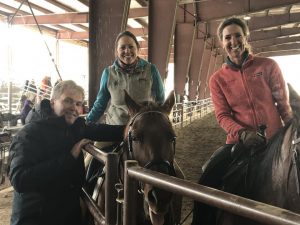
Silva with Amy Skinner and Gerd Heuschmann
Editor’s Note: 2018 Best Horse Practices Summit presenter Katrin Silva grew up riding dressage in Germany before moving to the United States at age 19 to learn to ride Western. She’s been riding both disciplines for the last twenty years and is a regular guest columnist for Cayuse Communications. She lives in New Mexico where she works with dressage and Western clients. Visit her blog here.
Silva writes:
What is a good teacher’s long-term goal? In a nutshell, to become superfluous.
Most of us would love it if our clients got along with their horses so well that they did not need us anymore. Seeing our students – both equine and human – become confident, accomplished individuals makes us happy. We try to give them the tools to reach their potential.
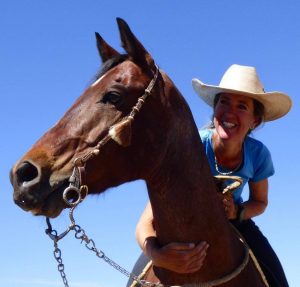 Yet there are also trainers who don’t put much effort into teaching people how to ride. I’ve seen instructors text while they teach. I’ve heard clinicians make demeaning, derogatory comments that make the student feel like a failure. I’ve been around trainers who keep their students in a state of relative ignorance, teaching them just enough to get through the next dressage test, the next horsemanship pattern, or their next trail ride. They teach how to sit on horses and cue their horses, but they don’t teach the “why” behind it all. Sadly, many students learn how to follow orders instead of how to problem-solve. They become co-dependent, not independent.
Yet there are also trainers who don’t put much effort into teaching people how to ride. I’ve seen instructors text while they teach. I’ve heard clinicians make demeaning, derogatory comments that make the student feel like a failure. I’ve been around trainers who keep their students in a state of relative ignorance, teaching them just enough to get through the next dressage test, the next horsemanship pattern, or their next trail ride. They teach how to sit on horses and cue their horses, but they don’t teach the “why” behind it all. Sadly, many students learn how to follow orders instead of how to problem-solve. They become co-dependent, not independent.
To be sure, some riders are content to be passengers on their horses. The traditional model of the show horse industry is based on owners dropping horses off at the trainer’s so the trainer can get the horses ready to compete. If the trainer shows the horse in open classes, they come watch. If they show their horse in amateur classes, they ride the horse enough times before the show to learn how to get around the ring.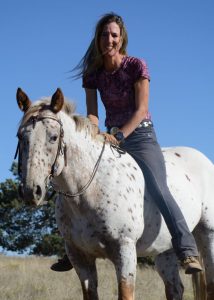
But, thankfully, the industry is changing. More owners want a hands-on approach that allows them to develop a real partnership with their horses. Shows and ribbons might still be part of the goal, but they’re not the only goal. The process of training, of progressing, of really getting to know the horse, has become much more important.
So, why do many trainers still act like teaching riders to ride well and independently is not an important part of their job description?
Part of the reason is a lingering stigma around riding instruction. I’ve heard said, “Those who can, do. Those who can’t, teach.” According to this logic, good teachers teach because they can’t train. According to this type of logic, teaching riders is a lesser skill, a second-rate fallback option.
In my early twenties, when I worked as an assistant trainer at a big show barn, I subconsciously bought into this argument, which is why I know it so well. Yet over the years, I’ve come to realize it’s totally wrong. Teaching riders is like to training horses; both require endless patience, sensitivity, empathy, and theoretical knowledge. Both take a lifetime of experience to develop. If you find teaching difficult because you lack one or more of these qualities, chances are your horse training skills suffer from the same deficits.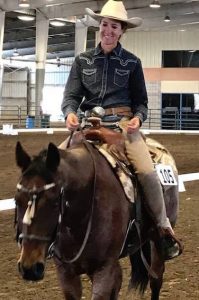
There is also an existential fear among teachers: if I teach my students everything I know, won’t I be out of a job?
Job security isn’t a valid reason to keep students co-dependent. The successful horse-rider pairs who don’t need me anymore may become my best advertising. They send me new clients who want the same kind of outcome. Many former students come back to me with new horses and/or new issues. Long-term clients simply enjoy being a part of a long-term process because they love their horses and want to see how far they can go.
Ultimately, I believe the biggest reason some professionals fail to put their heart and soul into teaching is this: teaching well means becoming vulnerable. Good teachers don’t put themselves on a pedestal. They use their own shortcomings as illustrations to help students overcome theirs. They encourage questions and enjoy looking for valid answers. They keep learning and don’t hide that habit. They don’t need to tear their students’ confidence down to build their own.
Teaching well can be challenging, humbling, and frustrating. It’s worth the effort because creating good riders means our world will be a better place for everyone involved, including the horses.
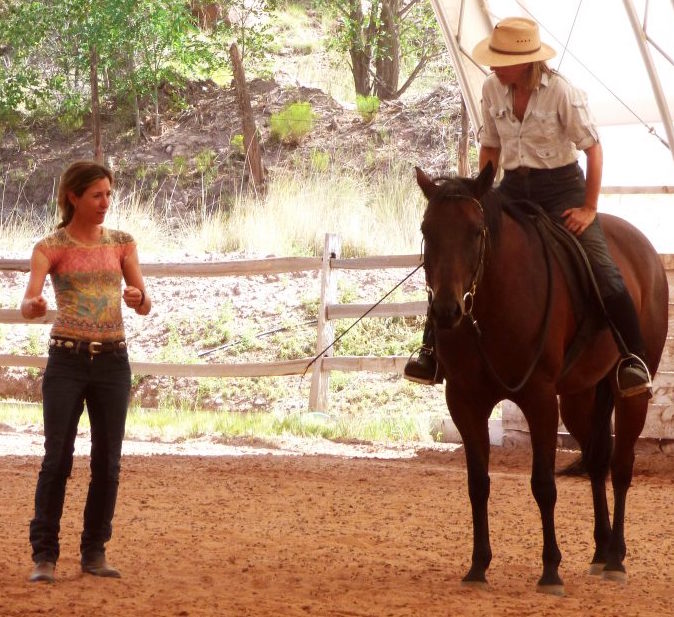
Well put, Katrin, bravo to you! I used to teach lessons and really enjoyed it. Most of my students were young and just starting out and a huge part of their lesson was handling and being around horses in a safe manner, knowing how to groom and look for possible “ouchies” as they work their way around the horse, and to tack up properly. A good number of my former students are now showing in local and national shows and others have their own horse and taking trail rides. Just as we can’t expect our horses to stay in kindergarten their whole lives, we cannot expect our students to stay there either. Otherwise, I have failed as a teacher.
Julie, your former students are lucky to have had you as a teacher who truly cared about them and their passion for horses. I hope you are proud of what you’ve done for them. I also hope you didn’t stop teaching completely!